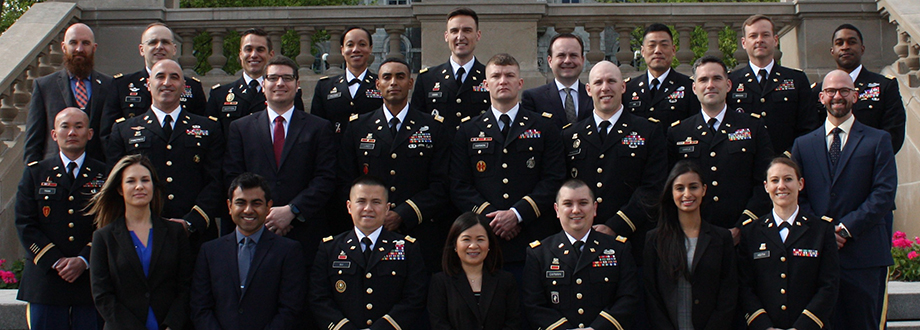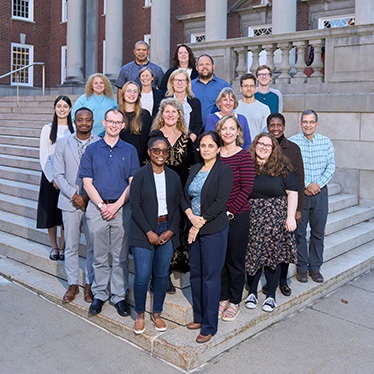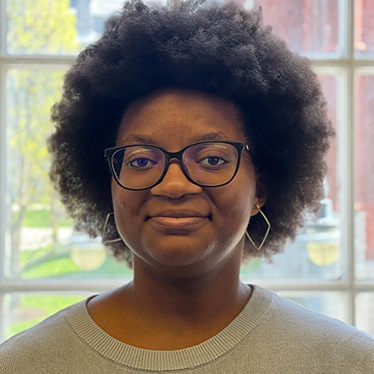Defense Comptrollership Program impacts graduates
September 9, 2019

Major Jason Forte, a chaplain in the U.S. Army, enrolled in Syracuse’s Defense Comptrollership Program (DCP) seeking to improve his skills by connecting scholarly research with real-world experiences. The 14-month program, housed at the Whitman School of Management, “helped close a knowledge gap and prepared me to apply decision making skills in my role with the Department of Defense,” Forte said.
He was one of 24 people who completed the program this summer, armed with new tools to support their work in the military. Since 1952, DCP has educated military personnel and civilians working in military finance roles. The dual degree allows students to earn an MBA and EMPA in 15 months. A new cohort of 25 began the program in June.
“The program brings military students to Maxwell, diversifying our degree population, and giving international – and some domestic students – a sense of the structure, operation, and leadership in the military,” said Steven Lux, director of the Executive Education Program.
Stephen G. Barth, acting assistant secretary of the Army, delivered the 2019 commencement address, stressing the importance of DCP in advancing the long-term professionalism of the Army’s financial management and controller. The program teaches best practices in strategically managing and modernizing the military’s financial resources, he added. Barth is a 1995 graduate of the Army Comptrollership Program, a precursor to DCP.
DCP students include active and retired military members and civilians working in the military. Forte spent nine years on active duty and a year in the Army Reserves and is interested in conflict analysis and resolution. He, like many DCP students, took advantage of EMPA’s flexibility, which allows students to tailor the program to student’s individual needs.
Through EMPA’s structured capstone project, Forte engaged with Syracuse University’s Autonomous Systems Policy Institute. “This experience centered on real-world solutions to actual problems,” he said.
He also earned a Certificate of Advanced Study in Conflict and Collaboration from the Program for the Advancement of Research on Conflict and Collaboration (PARCC). “This applied practical conflict management skills to academic theories to enhance my ability to engage various personalities in the workplace,” he said. “PARCC’s commitment to enhancing individuals’ ability to cope with conflict speaks directly to my role as a chaplain.”
DCP exceeded Forte’s expectations. “Exposure to international students, U.S. government leaders (past and present), and the ability to mix with world-class professors and instructors contributed to my positive experience,” he said.
09/09/19
Related News
School News

Jan 7, 2026
School News

Dec 5, 2025
School News

Dec 4, 2025
